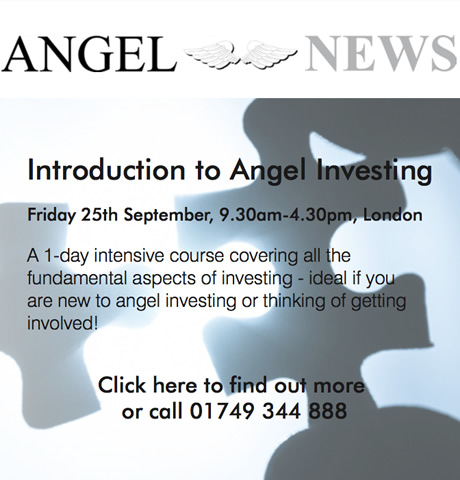St Leger’s Day: were investors right to sell in May?
· “Sell in May and go away, stay away ‘til St Leger’s Day”
· The Share Centre recommended five alternative shares for Summer
· Booker was our star performing prediction
As we welcome St Leger’s festival 2015, Graham Spooner, investment research analyst at The Share Centre, explores whether the historic tactic has benefitted investors this year.
“As we approach St Leger’s Day 2015 this Wednesday, equestrian enthusiasts can look forward to the oldest classic horse race in the world, first run in 1776. For investors this day identifies with the strategy of “sell in May and go away, stay away ‘til St Leger’s Day”, which is based on the historical seasonal decline in the markets.
“Earlier this year, we suggested five ‘buys’ for investors that might have defied this perceived logic. Looking back, how would you have done if you have sold up for summer? And how did our five shares fair against their benchmark index?
“Over the period the FTSE 100 fell by around 12% and the FTSE 250 by close to 3%. Breaking it down a little further it will come as no surprise that if your portfolio was geared or overweight mining and oil shares or exposed to other global markets and especially emerging markets then selling in May would have been a very rewarding strategy. For anyone else with a more balanced UK portfolio, then once dealing costs have been taken into account, it may not have been quite so clear cut.
“Our five shares to consider over the summer were; Booker, Marston’s, Easyjet, Compass and Restaurant Group.
“Starting with the two blue chip FTSE 100 constituents, Compass fell by exactly the same amount as the index - mostly on the back of slowing demand from the offshore oil & gas industry. Easyjet outperformed the index, helped perhaps by the ones who sold and booked their flights to go away, but was still down by around 2%. There was better news from one of our mid-cap selections. Whilst Restaurant Group was down by 3% and Marston’s was down 5%, they both did no more than follow their benchmark. The star performer was Booker which rose by 26% against a 3% fall in its benchmark. The group’s May results, accompanied by the acquisition of Londis and Budgens, were well received and the latest trading update in September has helped underpin the fine performance of its shares.
“In summary, our five picks (with the help of Booker) would probably have made you a little richer. The evidence for selling in May in recent years is hardly overwhelming. However thanks to China, this year will be viewed as one that would in general have rewarded investors. Another saying is that hindsight is a wonderful thing. We would recommend that investors look at what is best for their portfolio and not literally base their investments on old sayings, proverbs, adages or folk law.”
Barratt builds investor confidence with seven year high
· Barratt revealed a 41% rise in profits
· Demand for houses continues to outweigh supply
As Barratt Developments Plc reports this morning, Graham Spooner, investment research analyst at The Share Centre, explains what it means for investors.
“This morning Barratt reported a solid set of full-year results, revealing it has completed its most homes in seven years. UK total completions for the group rose 11% in the period to 16,447 units. The group remains confident on meeting its 2017 fiscal targets after reporting a hike of 41% in full-year profits, as property valuations rise and demand in the housing sector remains strong.
“These figures and those reported over the last few years have helped the housebuilder return to a net cash position. Investors should note that like many others in the sector, Barratt plans on returning some of this through special dividends.
“For investors, we are currently recommending Barratt as a ‘hold’. We are not discouraging those who are comfortable with a medium level of risk from looking into the group, as the outlook for the sector does remain favourable. However, our preferred housebuilder for investors is Taylor Wimpey.”
European Life Sciences companies increasingly turn to crowdfunding
Cambridge, UK. September 8th, 2015. European life sciences companies are increasingly using equity crowdfunding to finance their growth at a time of rapid progress for the industry. UK equity crowdfunding platform SyndicateRoom leads the way, enjoying top ranking across the whole of Europe, having completed 16 life science raises since launching less than two years ago.
These are the conclusions of a new report from German market analyst BIOCOM AG, published in a report titled “Analysis of Crowd-based Financing in European Life Sciences". The report is an overview of the available crowdfunding platforms for life science companies and an analysis of the role that crowdfunding plays in meeting the capital demands of the range of companies focused on improving quality of life. The report can be downloaded from:www.biocom.de/en/crowdfinancing2015
Since 2010, crowdfunding platforms have raised £17M across Europe for 42 life science businesses, with an average raise of around £400K. Most of this momentum has been in recent years, with 9 raises in 2013, 18 raises in 2014 and 13 in the first half of 2015.
SyndicateRoom alone accounts for almost 40% of those raises.
"With respect to the high capital demand in the life sciences, it was only a question of time before firms jumped on the bandwagon of crowd financing”, said report author Sandra Wirsching. “It is considered as a marketing tool and add-on to other financing instruments”.
Commenting on SyndicateRoom’s leadership across Europe, Wirsching said: “British crowdfunding platforms are amongst the most experienced in Europe. This is mostly due to Britain’s favourable regulatory framework that supports investment in higher-risk technology companies. Furthermore, platforms with strong ties to professional investors, such as SyndicateRoom, fit best to the high capital demand of life science companies”.
SyndicateRoom CEO Gonçalo de Vasconcelos added: “Our unique investor-led model allows our members to co-invest alongside experienced angel investors in highly sophisticated investment opportunities on the same economic terms as the lead investors. This is a powerful and successful model for life sciences businesses as they raise capital, as well as a range of other industries, including pharmaceuticals, information technology, property and even movie making”.
“We’re particularly proud to lead Europe in life sciences, against a field that includes specialist life sciences platforms. This is a testament to the strength of our model, uniting the crowd with professional investors that often have deep, sector-specific expertise.”
The full BIOCOM report is available at: www.biocom.de/en/crowdfinancing2015
A detailed case study focused on life sciences business Bactest, and their crowdfunding campaigns through SyndicateRoom, is available on request.
Risk Warning: Investing in early stage businesses involves risks, including illiquidity, lack of dividends, loss of investment and dilution, and it should be done only as part of a diversified portfolio. SyndicateRoom is targeted exclusively at sophisticated investors who understand these risks and make their own investment decisions.
Add a comment:
Call us on 01749 344 888
or click here to contact us







